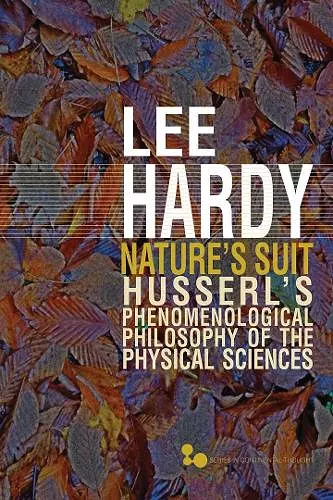Nature’s Suit
Husserl’s Phenomenological Philosophy of the Physical Sciences
Format:Paperback
Publisher:Ohio University Press
Published:15th Jan '14
Currently unavailable, and unfortunately no date known when it will be back

Edmund Husserl, founder of the phenomenological movement, is usually read as an idealist in his metaphysics and an instrumentalist in his philosophy of science. In Nature’s Suit, Lee Hardy argues that both views represent a serious misreading of Husserl’s texts.Drawing
Edmund Husserl, founder of the phenomenological movement, is usually read as an idealist in his metaphysics and an instrumentalist in his philosophy of science. In Nature’s Suit, Lee Hardy argues that both views represent a serious misreading of Husserl’s texts.
Drawing upon the full range of Husserl’s major published works together with material from Husserl’s unpublished manuscripts, Hardy develops a consistent interpretation of Husserl’s conception of logic as a theory of science, his phenomenological account of truth and rationality, his ontology of the physical thing and mathematical objectivity, his account of the process of idealization in the physical sciences, and his approach to the phenomenological clarification and critique of scientific knowledge. Offering a jargon-free explanation of the basic principles of Husserl’s phenomenology, Nature’s Suit provides an excellent introduction to the philosophy of Edmund Husserl as well as a focused examination of his potential contributions to the philosophy of science.
While the majority of research on Husserl’s philosophy of the sciences focuses on the critique of science in his late work, The Crisis of European Sciences, Lee Hardy covers the entire breadth of Husserl’s reflections on science in a systematic fashion, contextualizing Husserl’s phenomenological critique to demonstrate that it is entirely compatible with the theoretical dimensions of contemporary science.
“Lee Hardy’s study of Husserl is an outstanding achievement. The argumentation is crisp and clear throughout, and the discussion of primary and secondary texts is lucid and detailed. Above all, he makes a very good case for an important point that is highly relevant to the current resurgence of interest in phenomenology. Against the tendency of many other interpretations, he shows how Husserl’s phenomenology is in principle compatible with a realistic understanding of modern scientific theories.”
ISBN: 9780821420669
Dimensions: unknown
Weight: unknown
272 pages